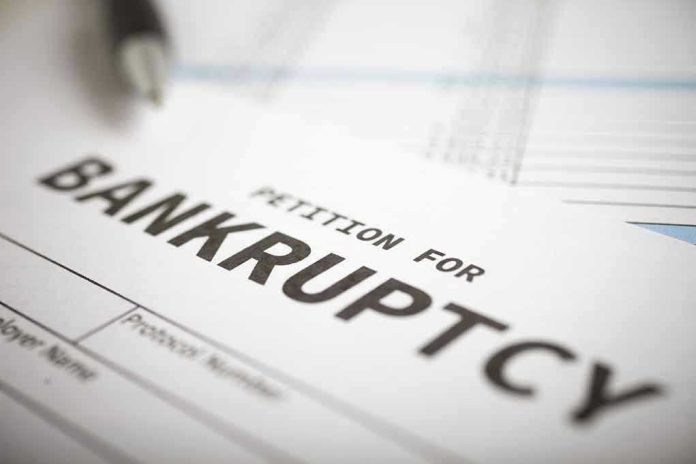
When the maker of the Roomba can’t afford to clean up its own mess, every American with a gadget in their home should pay attention—because this is more than a bankruptcy warning, it’s a cautionary tale for the entire tech industry.
Story Snapshot
- iRobot, creator of Roomba, faces possible bankruptcy after Amazon’s $1.4 billion acquisition collapsed.
- Cash reserves have plunged; no new buyers or funding sources are in sight.
- Regulatory scrutiny and fierce competition have exposed iRobot’s vulnerabilities.
- Consumer robotics could see a shakeup, with a pioneering brand on the brink of extinction.
How a Robotics Trailblazer Lost Its Way
iRobot started as a moonshot from MIT engineers in 1990, promising to bring robots into every American home. The Roomba, released in 2002, became a household name and sold over 50 million units. By 2022, iRobot’s glowing reputation was dimming. Asian competitors flooded the market with cheaper models, while iRobot stuck to a premium strategy that left it exposed when consumers tightened their belts. The COVID-19 pandemic further disrupted supply chains, and cracks began to show in iRobot’s bottom line.
Amazon stepped in with a $1.4 billion lifeline, aiming to make Roomba part of its smart home ecosystem. But the deal collapsed in early 2024, blocked by regulators who feared Big Tech’s growing influence. That single event transformed iRobot’s slow decline into a crisis. Without Amazon’s cash or clout, the company found itself scrambling for alternatives as revenue and profit numbers fell off a cliff.
Inside the Boardroom: Scrambling for Survival
March 2025 marked a pivotal moment. iRobot issued a public warning of “substantial doubt” about its ability to continue as a going concern. CEO Gary Cohen and the Board launched a frantic search for buyers, strategic partners, or new capital. By Q3 2025, the company’s cash reserves had dropped to $24.8 million, barely enough to survive the holiday season. The last potential acquirer withdrew in October 2025, reportedly offering a price well below current trading values. iRobot’s lenders extended a loan waiver period to December 1, 2025, but their patience is running thin. Employees, shareholders, and customers are left in limbo, watching the clock tick toward a possible bankruptcy filing.
Management remains focused on delivering products for the holidays, but their communications to investors and staff are blunt: without fresh funding or a buyer, bankruptcy protection is likely. Lenders hold the upper hand, and any decision made by Cohen or the Board must now balance the interests of creditors, staff, and desperate shareholders. The regulatory climate, which blocked Amazon’s rescue, now quietly shapes every move, deterring other big tech acquirers from stepping in.
The Domino Effect: What Happens If iRobot Fails?
If iRobot files for bankruptcy, the immediate impact will hit employees—layoffs could be swift and deep. Shareholders face painful losses, and retailers may struggle to support Roomba owners with parts or repairs. But the ripple effects extend further. A liquidation or fire-sale acquisition of iRobot’s assets would end a brand that once led the consumer robotics revolution. Competitors, especially lower-cost Asian manufacturers, could seize the opportunity to consolidate the market.
The broader industry faces a chilling lesson: innovation alone cannot guarantee survival if a company fails to diversify and adapt to shifting market dynamics. For American tech firms, the increased regulatory scrutiny of mergers and acquisitions makes it harder to find rescue partners. Investors may become wary of hardware startups, and the talent pool may migrate toward software, where the risks are perceived as lower. The political implications are clear—regulators have the power to reshape markets, sometimes at the cost of American innovation and jobs.
Expert Analysis: Could This Mess Have Been Avoided?
Industry experts agree that iRobot’s narrow focus on a single product line put it at risk. The Roomba was revolutionary, but the company never built a robust portfolio to weather market disruptions. Business analysts point to similar stories—GoPro and Fitbit teetered on the edge after failing to diversify, only surviving through timely acquisitions. Regulatory experts highlight how antitrust fears are making tech rescues nearly impossible, leaving hardware firms exposed when times get tough.
Some observers believe iRobot’s technology and brand still have value, but only at a distressed price. If a buyer emerges, it will likely be a competitor or private equity firm looking to scoop up patents and know-how for pennies on the dollar. Others argue bankruptcy is inevitable given the current cash crunch and lack of credible acquirers. For American conservatives and common sense thinkers, this is a wake-up call: when government policy and market realities collide, even the best ideas can be swept aside. The fate of iRobot is a lesson in the risks of overreliance, the importance of diversification, and the unpredictable consequences of regulatory intervention.

